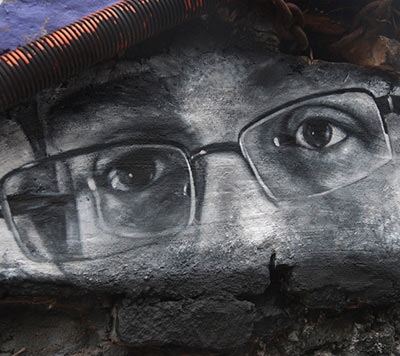
Truthout is an indispensable resource for activists, movement leaders and workers everywhere. Please make this work possible with a quick donation.
Can you help sustain our work in 2014? Click here to make a tax-deductible contribution to Truthout!
Washington – There are really just two possible choices for person of the year. I want to say Pope Francis, but I’ve got to go with Edward Snowden.
The spiritual leader of 1.2 billion Roman Catholics and a whistleblowing fugitive from American justice have just one thing in common: impact. Francis, by shifting his church’s focus to social justice, may change the world. But Snowden, by revealing the vast extent of government surveillance, already has.
Someday, perhaps, this ranking will be reversed. I hope it is, because the change that Francis advocates is more sweeping — and long overdue. The Catholic Church, despite its many problems, remains a powerful force around the globe. If its energies are directed away from the culture wars — and toward fighting poverty, inequality and injustice — the church can play a hugely influential role in shaping the new century.
I was a bit unsure about Jorge Mario Bergoglio when he was chosen as the first Jesuit and first modern-era non-European to serve as pontiff. I lived In Argentina, his homeland, for four years as a Washington Post foreign correspondent. I knew that during the South American dictatorships of the 1970s and ’80s, the church in Argentina — unlike in Chile, for example — had been cozy and complicit with the ruling generals.
The consensus of researchers who have examined Francis’ history is that he did not collaborate with the murderous ruling junta, which killed or “disappeared” at least 15,000 suspected leftists — but also that he did not openly confront the regime. It is tempting to see his subsequent career as an extended act of atonement, culminating in the dizzying months since his election to the papacy in March.
Francis declined to move into the opulent papal apartments, choosing instead to live in spartan rooms at a Vatican guesthouse. His acts of humility and compassion are so frequent that by now they seem almost commonplace — inviting three homeless men from the streets of Rome to share breakfast with him, for example, or washing the feet of young people living in a juvenile detention center.
Most striking, however, is his decision to downplay issues such as abortion or homosexuality and instead emphasize social and economic justice. His recent 50,000-word exhortation to the faithful included a point-blank denunciation of trickle-down economics and a reminder that Jesus’ teachings require offering compassion to the poor.
Francis has also moved boldly to shake up the conservative church bureaucracy. Potentially, he will be remembered as the pope who confronted rising inequality in the same way that John Paul II was the pope who confronted communism. But it will be years before we know whether Francis succeeds.
Snowden, unlike Francis, is rarely accused of humility. It is fair to describe him as smug and self-righteous — an imperfect messenger, to say the least.
But what a message.
He was an obscure analyst working for a National Security Agency contractor at a remote outpost in Hawaii. When he began working in the secret world, by his own telling, he was a true believer. But he became disillusioned — and then incensed — at what he considered outrageous violations of individual privacy by a surveillance apparatus that was out of control.
Snowden’s decision to leak massive amounts of information concerning some of the NSA’s most secret and intrusive spying programs has done more than embarrass officials in Washington. It has galvanized efforts throughout the world to protect what little privacy we have left.
Snowden’s revelations are devastating in their specificity. Americans know that all of our phone calls are logged by the government in a massive database. German Chancellor Angela Merkel knows that the NSA tapped her mobile phone. Brazilians and Indonesians, among others, know that their phone conversations may be listened to and their emails may be perused.
We know that secret court orders have forced phone companies and Internet providers to surrender private information. We also know that unbeknownst to those companies, the NSA and its partners — the equivalent spy agencies in Britain, Canada, Australia and New Zealand — apparently tap into fiber-optic cables and guzzle as much information as they can.
These ongoing disclosures provide a detailed map of a shadow-realm that spans the globe. We now know how technology is destroying privacy — and what steps governments and communications companies must be pressured to take in order that privacy survives.
I can’t think of any individual who had more influence in 2013. Edward Snowden is person of the year.
A terrifying moment. We appeal for your support.
In the last weeks, we have witnessed an authoritarian assault on communities in Minnesota and across the nation.
The need for truthful, grassroots reporting is urgent at this cataclysmic historical moment. Yet, Trump-aligned billionaires and other allies have taken over many legacy media outlets — the culmination of a decades-long campaign to place control of the narrative into the hands of the political right.
We refuse to let Trump’s blatant propaganda machine go unchecked. Untethered to corporate ownership or advertisers, Truthout remains fearless in our reporting and our determination to use journalism as a tool for justice.
But we need your help just to fund our basic expenses. Over 80 percent of Truthout’s funding comes from small individual donations from our community of readers, and over a third of our total budget is supported by recurring monthly donors.
Truthout’s fundraiser ended last night, and we fell just short of our goal. But your support still matters immensely. Whether you can make a small monthly donation or a larger one-time gift, Truthout only works with your help.